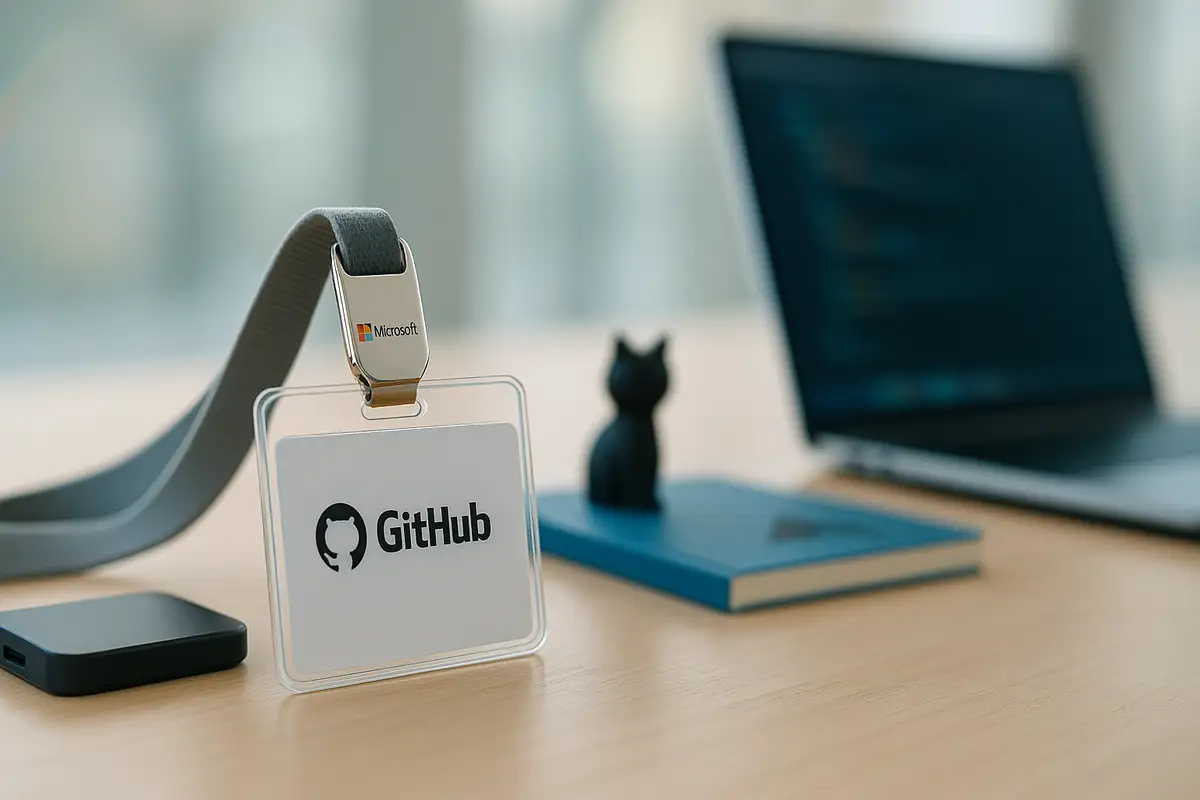Moltbot Punched Through Every Security Wall. Attackers Followed.
Researchers found 1,862 Moltbot servers exposed without authentication. The viral AI assistant stores credentials in plaintext and invites attack by design.
GitHub isn't building the best AI coding agent—it's building the layer beneath all of them. Agent HQ bets enterprises value coordination over specialization. Platform strategies that extract value from ecosystem competition reshape markets more durably.

At Universe 2025, the Microsoft-owned platform announced Agent HQ—a unified control plane for managing coding agents from Anthropic, OpenAI, Google, Cognition, and xAI alongside its own Copilot. The architecture maintains GitHub's core primitives (Git, pull requests, issues) while adding what COO Kyle Daigle calls "a little bit of order to the chaos of innovation." OpenAI Codex lands in VS Code Insiders this week for Copilot Pro+ users. The full roster rolls out over coming months to all paid Copilot subscribers.
The positioning is precise: GitHub won't compete on agent quality. It'll win on orchestration.
The Breakdown
• Agent HQ unifies coding agents from Anthropic, OpenAI, Google, xAI with OpenAI Codex shipping this week to Copilot Pro+ subscribers.
• Security architecture compartmentalizes agent access at branch level, extending GitHub's enterprise governance controls to third-party AI agents within sandboxed environments.
• AGENTS.md files and native MCP support let enterprises encode organizational standards in version control and integrate external tools with single-click installation.
• GitHub positions as orchestration layer extracting value from agent proliferation, betting coordination matters more to enterprises than any single agent's specialized capabilities.
The AI coding landscape split into specialized tools over the past 18 months. Cursor optimized for editor-native experience. Anthropic's Claude handles repository-level reasoning. Cognition's Devin tackles end-to-end tasks. Each requires separate context, separate permissions, separate workflows.
"With so many different agents, there's so many different ways of kicking off these asynchronous tasks," Daigle told CNBC. Mission Control—the command center at Agent HQ's core—gives developers a single interface across web, VS Code, mobile, and CLI to assign work, track progress, and manage permissions for multiple agents simultaneously.
The bet: enterprises value coordination more than any single agent's capabilities. When 80% of new developers use Copilot in their first week (per GitHub's Octoverse report), the problem isn't agent adoption. It's agent proliferation.
The technical differentiation runs through access controls. Standalone implementations like Cursor or direct Claude integration typically require broad repository permissions. Agent HQ compartmentalizes at the branch level.
"Our coding agent has a set of security controls and capabilities that are built natively into the platform, and that's what we're providing to all of these other agents as well," COO Mario Rodriguez explained to VentureBeat. Agents operate with locked-down GitHub tokens, commit only to designated branches, and run inside sandboxed Actions environments with firewall protections. The architecture prevents data exfiltration even if an agent misbehaves.
For enterprises already managing identity controls, audit logging, and branch permissions for human developers, Agent HQ extends the same governance to AI. Rodriguez's recommendation is straightforward: "Go and do agent coding, custom agents and start playing with that. That is a capability available tomorrow, and it allows you to really start shaping your SDLC to be personalized to you, your organization and your people."
Beyond orchestration, GitHub's shipping two capabilities that set Agent HQ apart from aggregation plays.
Custom agents via AGENTS.md files let enterprises encode organizational standards in source-controlled configurations. "Prefer this logger" or "use table-driven tests for all handlers" becomes permanent instruction rather than repeated prompting. Teams version control agent behavior alongside code. When developers clone a repository, they inherit the custom agent rules automatically.
"Custom agents have an immense amount of product market fit within enterprises, because they could just codify a set of skills that the coordination can do, then standardize on those and get really high quality output," Rodriguez said.
Native Model Context Protocol support positions GitHub as the integration point between Anthropic's emerging standard and actual developer workflows. VS Code now includes a GitHub MCP Registry—developers discover, install, and enable MCP servers (Stripe, Figma, Sentry) with single-click installation. This solves the integration problem: agents access external services without implementing custom logic for each tool.
Plan Mode addresses a common failure pattern—starting implementation before requirements crystallize. The feature forces an explicit planning phase where Copilot asks clarifying questions before writing code. Once approved, plans execute locally in VS Code or via cloud agents.
The agentic code review layer taps GitHub's CodeQL engine, previously focused on security vulnerabilities, to scan for bugs and maintainability issues in agent-generated pull requests before human review. It's a two-stage quality gate.
GitHub's strategy crystallizes around a specific thesis: agent proliferation creates orchestration value. The company operates the world's largest developer platform—180 million users, growing at record pace. It's not optimizing for the best agent experience. It's optimizing for the best multi-agent experience.
From GitHub's perspective, maintaining platform neutrality while controlling the infrastructure layer extracts value regardless of which agents win. Enterprises get vendor flexibility and reduced lock-in risk. Developers test multiple agents within unified security perimeters and switch providers without workflow retraining.
From a competitive lens, Agent HQ consolidates Microsoft's position in enterprise development workflows. Cursor and Claude offer superior specialized experiences, but lack platform-level governance. GitHub's bet: that gap matters more to buyers than agent quality differences.
Both readings fit. The architecture genuinely solves enterprise security concerns while strengthening GitHub's grip on developer tooling.
Rodriguez's sequencing advice: start with custom agents to codify standards, then layer in third-party agents to expand capabilities. This approach lets organizations establish baseline behavior before introducing vendor diversity.
The timing consideration: OpenAI Codex ships this week for Pro+ users, but the full agent roster arrives "over coming months." Early adopters gain familiarity with the orchestration layer. Late movers wait for the complete lineup.
The strategic question organizations face isn't whether Agent HQ delivers on its promises. It's whether orchestration value justifies accepting GitHub's position between their developers and their AI tools.
Q: Does Agent HQ cost extra on top of my existing Copilot subscription?
A: No. Agent HQ and third-party agents roll out to all paid GitHub Copilot subscribers at no additional cost. Copilot Individual starts at $10/month, Team at $19/user/month, and Enterprise at $39/user/month. OpenAI Codex access this week requires Copilot Pro+, GitHub's premium tier.
Q: When exactly do Anthropic, Google, and other agents become available?
A: GitHub hasn't provided specific dates beyond "coming months" for the full agent roster. OpenAI Codex ships to Copilot Pro+ users in VS Code Insiders this week. The vague timeline suggests integration work remains—each vendor needs to implement GitHub's security model and Mission Control APIs.
Q: How does Agent HQ differ from using Cursor or Claude directly?
A: Cursor and standalone Claude require broad repository access. Agent HQ restricts agents to specific branches and runs them in sandboxed GitHub Actions environments with firewall protection. The tradeoff: Cursor's editor feels more integrated, but Agent HQ offers enterprise governance and the ability to test multiple agents in parallel.
Q: What is Model Context Protocol (MCP) and why does GitHub's support matter?
A: MCP is Anthropic's standard for agent-to-tool communication, gaining industry adoption. GitHub's native MCP support lets agents access external services like Stripe, Figma, and Sentry without custom integration code. VS Code becomes the only editor supporting the full MCP specification, positioning GitHub as the integration point between agents and tools.
Q: Can I test which agent works best for my team before committing?
A: Yes. Agent HQ lets you assign the same coding task to multiple agents simultaneously and compare results. Rodriguez recommends starting with custom agents via AGENTS.md files to encode organizational standards first, then layer in third-party agents. This approach establishes baseline behavior before introducing vendor diversity.



Get the 5-minute Silicon Valley AI briefing, every weekday morning — free.